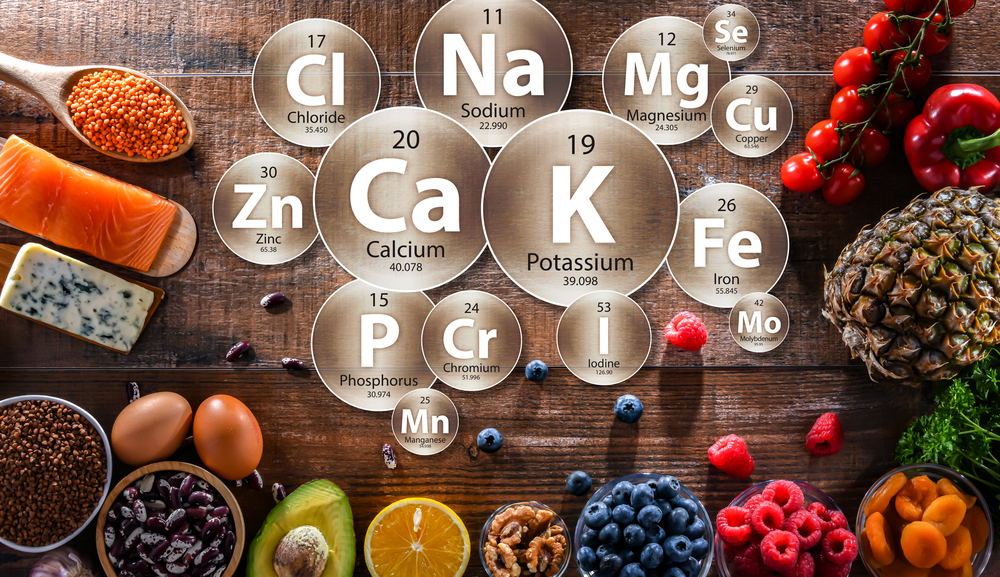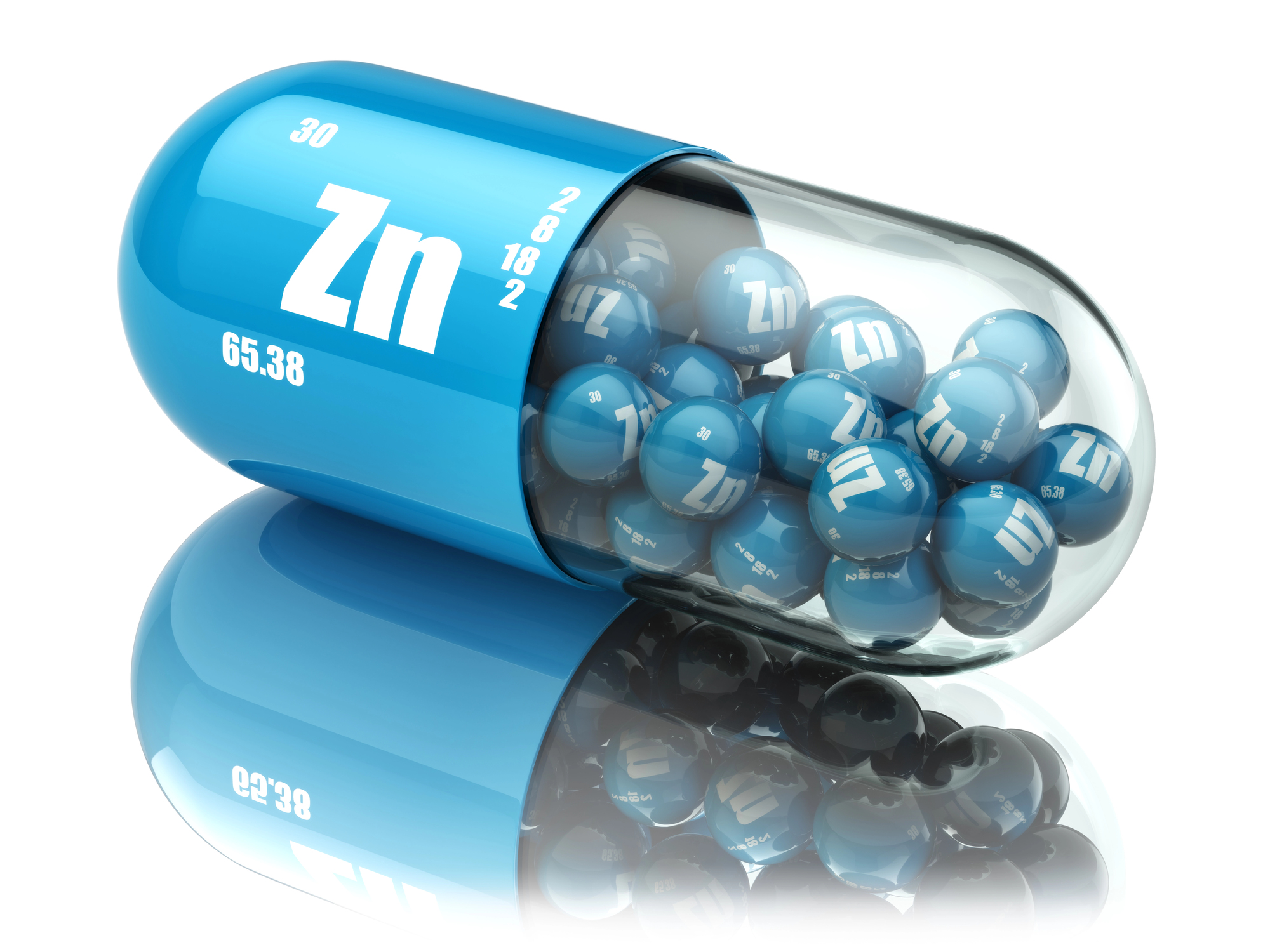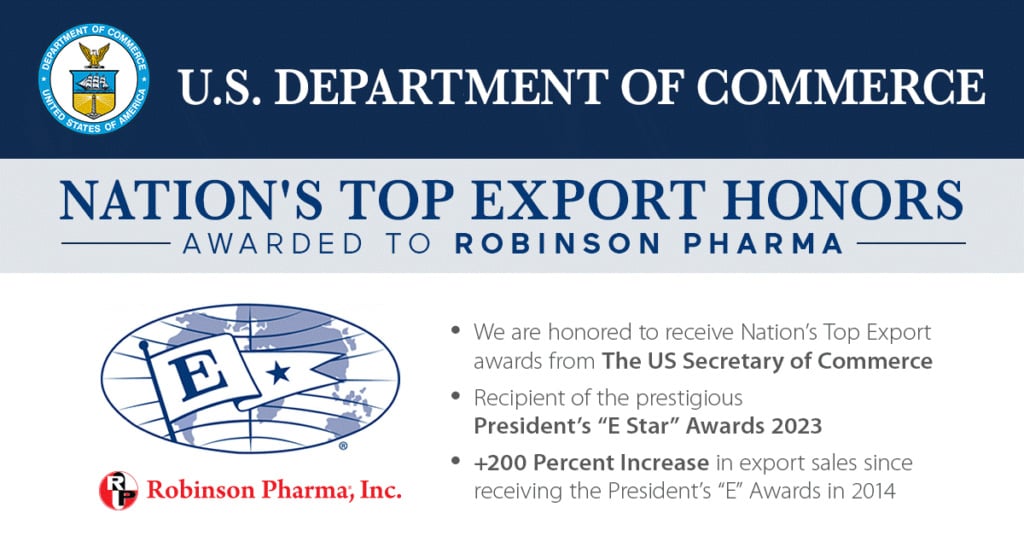Did you know that supplementing essential nutrients is one of the simplest yet most effective ways to enhance your immunity and support overall health? Among these, zinc is a vital mineral that the body needs for optimal functioning. This article will provide an overview of the benefits of zinc supplements, helping you better understand how zinc can improve your health.
Key Takeaways
- Zinc is essential for maintaining optimal health and contributes to various physiological functions.
- The benefits of zinc dietary supplements include boosting the immune system, improving skin health, enhancing reproductive health, and supporting metabolic processes.
- Zinc can be obtained from meat, fish, eggs, dairy products, legumes, and supplements.
- The recommended dosage of elemental zinc is 8-11 mg per day.
What Is Zinc?
Zinc is an essential mineral that the body cannot produce or store, meaning that dietary supplementation is crucial for maintaining health. Zinc plays an important role in many physiological processes, including gene expression, enzyme reactions, immune function, protein synthesis, DNA synthesis, and wound healing.
In nature, zinc is found in many foods from both animal and plant sources. Rich dietary sources of zinc include seafood, especially oysters, red meat such as beef and pork, eggs, and dairy products. Although some plant-based foods like legumes, nuts, and whole grains also contain zinc, the bioavailability of zinc from these foods is often lower than from animal products.

What Does Zinc Do For Your Body?
According to a report by the National Institutes of Health, zinc is an essential nutrient for optimal health. With its crucial role in cells throughout the body, zinc contributes to many physiological functions. One of the most notable benefits of zinc is its ability to support the immune system, helping the body fend off invading bacteria and viruses. This helps protect health, especially during times of increased susceptibility to illness.
Additionally, zinc plays a vital role in wound healing. It stimulates tissue regeneration, helping wounds heal faster. Another benefit of zinc is its ability to maintain taste sensation, enhancing the daily eating experience.
10 Zinc Dietary Supplement Benefits
Immune Function
One of the benefits of zinc dietary supplements is their ability to enhance immune function. They can help strengthen the immune system and combat infections, and if used at the onset of symptoms, zinc may assist in treating certain infections. According to a meta-analysis of seven different studies, zinc lozenges containing 80-92 mg of zinc can reduce the duration of the common cold by up to 33%. This suggests that zinc can play an important role in alleviating symptoms and shortening the duration of illness.
Moreover, zinc can also act as an antioxidant, helping reduce inflammation and protect the body against chronic diseases such as heart disease, cancer, and diabetes. Another meta-analysis found evidence that zinc supplementation may prevent symptoms and shorten the duration of some respiratory infections.
May Benefit For Diarrhea
Zinc has been shown to help reduce the duration and severity of episodes of diarrhea, particularly in malnourished children. The World Health Organization (WHO) recommends zinc supplementation for children with diarrhea, with a dosage of 20 mg per day for 10-14 days for children and 10 mg per day for infants under 6 months. Studies show that zinc not only helps shorten episodes of diarrhea but may also prevent recurrence, although the exact mechanism of how zinc reduces diarrhea symptoms is not yet fully understood.

Wound Healing
Zinc is essential for maintaining skin health and promoting the healing process. Individuals with chronic wounds or ulcers often have low levels of zinc, indicating that zinc deficiency can hinder recovery. Therefore, healthcare professionals often recommend zinc supplementation for those with chronic wounds. A 2017 study showed that zinc is involved in all stages of the healing process, from skin repair to infection prevention. Another 12-week study involving 60 individuals with diabetic foot ulcers found that those receiving 50 mg of zinc daily had significantly reduced ulcer size compared to the placebo group.
Although researchers have called for more studies to clarify the mechanisms of zinc in wound healing, zinc is widely used in hospitals as a treatment for burns, ulcers, and other skin injuries.
Oxidative Stress
Zinc is known for its antioxidant properties, helping to minimize oxidative stress in the body. Oxidative stress arises from an imbalance between free radicals and antioxidants, which can lead to various chronic diseases such as hypertension, diabetes, and metabolic syndrome.
A 2017 study indicated that zinc may play an important role in preventing metabolic syndrome, a condition that can lead to serious diseases. The authors of this study emphasized the need for further research to clarify how zinc affects health and whether zinc supplementation could be a beneficial treatment [8].
Age-Related Macular Degeneration
Zinc is crucial for protecting eye health, particularly in preventing age-related macular degeneration (AMD). According to the National Institutes of Health (NIH), zinc helps prevent damage to retinal cells, potentially slowing the progression of AMD and reducing vision loss.
A 2013 study found that daily supplementation of antioxidants such as vitamin E, vitamin C, and beta carotene, along with 80 mg of zinc, could reduce vision loss and significantly decrease the risk of developing advanced AMD.
Another study in 2020 discovered that zinc deficiency might contribute to the development of this degenerative condition. However, more research is needed to confirm this.

Sexual Health
Zinc deficiency can have negative effects on reproductive health. A 2018 study indicated that zinc plays a vital role in maintaining sexual health due to its antioxidant properties and hormone-balancing abilities.
Low zinc levels can lead to developmental delays, affecting physical and mental development throughout life, including issues related to sexual health. However, excessive zinc supplementation can also lead to toxicity, negatively impacting sperm quality.
Skin Conditions
A form of zinc known as zinc sulfate is particularly effective in reducing mild to moderate acne symptoms. Research shows that individuals with acne tend to have lower blood zinc levels compared to those without, and zinc supplementation can reduce the number of inflammatory lesions caused by this condition.
Studies also indicate that both topical and oral zinc treatments can effectively reduce inflammation, inhibit the growth of P. acnes bacteria, and decrease oil gland activity. Therefore, zinc may support the treatment of various skin conditions, such as acne, eczema, and other inflammatory skin diseases.
Osteoporosis
Zinc may help maintain bone health and contribute to the prevention of osteoporosis. According to a 2020 study, zinc is believed to support the protection of bones from loss of mineral density, a crucial factor in the development of osteoporosis [14].
Neurological Symptoms
The benefits of zinc supplements extend beyond improving physical health; they may also assist in alleviating neurological symptoms.
A 2020 study concluded that there may be a link between low zinc levels and neurological symptoms. This research surveyed 63 individuals with symptoms such as headaches, numbness, and peripheral neuropathy, along with zinc and other micronutrient deficiencies [15].
After treatment, participants reported significant improvements in their neurological symptoms. However, researchers acknowledged the need for more studies to better define this relationship.
May Support Type 2 Diabetes
It is a fact that individuals with type 2 diabetes often have low zinc levels. A 2019 review of multiple studies indicated that zinc supplementation could help control blood sugar levels by lowering blood glucose and cholesterol to balanced levels [16].
The benefits of zinc supplements not only lie in supporting blood sugar control but may also contribute to improving risk factors associated with diabetes.
Deficiency Symptoms Of Zinc
Zinc deficiency is a rare condition, but if it occurs, it can lead to several serious symptoms. Check if you might be zinc deficient by looking for the following symptoms: impaired immunity, hair loss, appetite loss, diarrhea, skin rashes, and slow-healing wounds.
Research has shown that zinc supplementation can effectively increase blood zinc levels [17]. Most cases of zinc deficiency can be easily remedied through supplementation and dietary adjustments, leading to rapid improvement of symptoms. For instance, diarrhea can improve within 24 hours, while skin lesions typically heal within 1-2 weeks after starting supplementation.

Zinc deficiency can cause genetic alterations, especially in breastfed infants whose mothers lack sufficient zinc, alcoholics, and individuals on immunosuppressive medications. Additionally, zinc deficiency weakens the immune system, increasing the risk of infections, and is believed to cause over 450,000 deaths in children under 5 years old each year [18].
Suppose you suspect you may have symptoms of zinc deficiency. In that case, it is essential to consult a specialist to check your blood zinc levels. A doctor will consider other risk factors, such as poor diet and genetics, and suggest appropriate corrective measures.
Sources Of Zinc
Zinc is an essential mineral found in a variety of animal and plant foods, making it relatively easy for most people to absorb adequate amounts. Here are common sources of zinc:
Food Source Of Zinc
Many foods are rich in zinc, including:
- Seafood: Oysters, crab, lobster, clams.
- Meat: Beef, pork, lamb.
- Poultry: Turkey and chicken.
- Fish: Flounder, sardines, salmon, and sole.
- Legumes: Chickpeas, lentils, black beans, kidney beans.
- Nuts and seeds: Pumpkin seeds, cashews, and hemp seeds.
- Dairy products: Milk, yogurt, and cheese.
- Eggs.
- Whole grains: Oats, quinoa, brown rice.
- Vegetables: Mushrooms, kale, peas, asparagus, and turnip greens.
Animal products like meat and seafood contain high levels of zinc in forms that are easier for the body to absorb. In contrast, zinc from plant sources like legumes and whole grains is often harder to absorb due to other plant compounds inhibiting absorption.
Dietary Supplements
Zinc supplementation is necessary for those following vegetarian or plant-based diets because zinc in plant foods is often less bioavailable. Many types of zinc supplements are available on the market, providing adequate zinc for those not getting enough through their daily diet.

Other Sources
In addition to food and supplements, some processed foods like breakfast cereals and snack bars are also fortified with zinc. This provides a convenient opportunity for those with higher zinc needs in their daily diet. To ensure adequate zinc intake, choosing a diverse and balanced diet is crucial.
Toxicity And Dosage Recommendations Of Zinc
Similar to zinc deficiency, excessive zinc intake can lead to negative health issues. The most common cause of zinc toxicity is the overuse of supplements. Symptoms of toxicity may include:
- Nausea and vomiting
- Diarrhea
- Abdominal pain and cramping
- Headaches
Excessive zinc consumption can also lead to nutrient deficiencies, such as copper and iron. Research shows that consuming high doses of zinc over extended periods, such as 60 mg per day for 10 weeks, may reduce copper levels in the body [19].
The daily zinc dosage needed depends on your diet and the type of supplement you choose, as supplement products can contain varying amounts of elemental zinc. For example, zinc sulfate contains 23% elemental zinc, meaning 220 mg of zinc sulfate provides about 50 mg.
It is recommended that adults consume 8-11 mg of elemental zinc daily [1]. This amount can easily be achieved through a healthy diet that includes zinc-rich foods or quality zinc supplements.
Although some sources suggest that high doses of zinc may address issues related to acne, diarrhea, and respiratory infections, it is best not to exceed the upper limit of 40 mg per day unless under the guidance and supervision of a doctor [1].
Interactions With Medications
Antibiotics
Both quinolone antibiotics (like Cipro) and tetracycline antibiotics (such as Achromycin and Sumycin) can interact with zinc in the gastrointestinal tract, leading to reduced absorption of both zinc and antibiotics if taken simultaneously. To minimize this interaction, users should take antibiotics at least 2-6 hours before using zinc supplements.
Penicillamine
Zinc may reduce the absorption and effectiveness of penicillamine, a drug used to treat rheumatoid arthritis and Wilson’s disease. Users can limit this interaction by taking zinc supplements and penicillamine at least 1 hour apart.
Diuretics
Thiazide diuretics, such as chlorthalidone (Hygroton and Thalitone) and hydrochlorothiazide (Esidrix and HydroDIURIL), can increase the excretion of zinc through urine. This increased excretion can lead to lower serum zinc levels, potentially affecting the benefits of zinc supplements.
FAQs
Who Should Not Take Zinc?
Individuals with a history of stomach surgery or prolonged intravenous nutrition should limit zinc intake as it may increase the risk of copper deficiency.
What Are The Benefits Of Zinc Supplements For Women?
The benefits of zinc supplements for women include immune support, improved skin health, hormone balance, enhanced bone health, faster wound healing, mood regulation, and support for reproductive health.
What Are The Benefits Of Zinc Supplements For Men?
The benefits of zinc supplements for men include enhanced immune function, reduced inflammation, support for testosterone levels, promotion of muscle growth, improved cognitive function, and maintenance of skin health.
Should I Take Zinc Supplements Every Day?
Whether you should take zinc supplements daily depends on several factors, including your diet, health status, and specific nutritional needs. Zinc can be taken daily at doses of 8-10 mg as a doctor advises, with breaks to allow the body to regulate absorption.
Can I Take Too Much Zinc?
If you take too much zinc over a long period, you may experience issues such as weakened immunity, low high-density lipoprotein (HDL) cholesterol (the “good” cholesterol), low copper levels, and reduced magnesium absorption.
Conclusion
The benefits of zinc supplements extend beyond immune support and include various aspects such as improving skin health, enhancing reproductive capabilities, and supporting metabolic processes. With the detailed information in this article, we hope you will feel motivated to consider adding zinc to your nutrition regimen.



